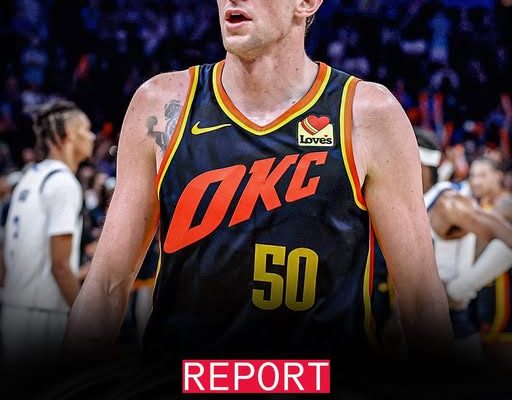The Phoenix Suns have made a calculated and quietly significant move by adding Mike Muscala, an 11-year NBA veteran, to their coaching staff, signaling both a commitment to player development and a desire to infuse the locker room with seasoned perspective. Muscala, who carved out an impressive career as a stretch big man capable of spacing the floor, brings with him not only a wealth of on-court knowledge but also the intangible qualities that make former role players uniquely valuable in coaching roles. This addition, while not the type of blockbuster news that grabs headlines like a major trade or free agent signing, has the potential to pay long-term dividends for the Suns, especially given the composition of their current roster and the competitive landscape of the Western Conference.
Muscala’s career is a case study in longevity, adaptability, and professionalism. Drafted in the second round of the 2013 NBA Draft by the Atlanta Hawks, he entered the league without the fanfare of a lottery pick but made his mark through consistency, reliability, and a skill set that fit the modern game. As the NBA shifted toward pace-and-space basketball, Muscala’s ability to knock down three-pointers from the frontcourt became a valuable asset. He may not have been a household name, but his teammates, coaches, and opponents understood the threat he posed as a pick-and-pop big and his knack for making the right play at the right time. Across stints with the Hawks, Philadelphia 76ers, Los Angeles Lakers, Oklahoma City Thunder, Boston Celtics, and Washington Wizards, Muscala proved that he could adapt to various systems and contribute in different roles. That adaptability is precisely the type of attribute that often translates well into coaching.
For the Suns, the timing of this hire is especially interesting. The team is in a period of recalibration after a season that fell short of championship aspirations. While the roster remains headlined by stars like Devin Booker and Kevin Durant, the supporting cast has been in flux, and the organization is actively searching for ways to maximize the potential of its core without compromising future flexibility. Bringing in a coach like Muscala is a subtle but meaningful step toward enhancing player development, particularly for younger bigs and stretch forwards who could benefit from learning the nuances of floor spacing, off-ball movement, and defensive positioning from someone who lived it for over a decade in the league.
The presence of a former player like Muscala on the bench also offers value beyond X’s and O’s. Veteran role players often possess a deep understanding of locker room dynamics, the grind of an 82-game season, and the mental resilience needed to contribute even when not in the spotlight. They know what it means to be prepared at all times, to earn the trust of coaches, and to adjust their game to fit different teammates and systems. Muscala’s career included playoff runs and seasons on rebuilding teams, giving him a broad spectrum of experiences to draw from when mentoring current Suns players. In particular, big men such as Jusuf Nurkić, Bol Bol, or even rookie prospects could find his insights invaluable in refining their games for today’s NBA.
The Suns’ front office has shown a willingness to think creatively when filling out the coaching staff, recognizing that in the modern NBA, the margins matter just as much as the big moves. While head coach Frank Vogel remains the architect of the team’s defensive identity and overall game plan, the addition of specialized voices on the bench can make a tangible difference. Muscala’s expertise in stretching defenses, setting high-quality screens, and making quick decisions in the pick-and-roll could help the Suns fine-tune aspects of their offensive playbook that need more fluidity. Given Phoenix’s tendency in recent years to rely heavily on isolation scoring from its stars, integrating more movement and spacing principles could elevate the team’s offensive ceiling.
Muscala’s personality also makes him a natural fit for a coaching role. Throughout his career, he was regarded as a high-character teammate, the kind of player who embraced his role without ego and maintained a professional approach whether playing 25 minutes a night or sitting for extended stretches. Those traits are critical for a coaching staff member, especially in the NBA, where managing personalities and keeping morale high can be as important as drawing up plays. Muscala’s ability to relate to players at different stages of their careers could foster stronger communication between the roster and the coaching staff, bridging potential gaps between veterans, young prospects, and the front office’s vision.
The move also aligns with a broader trend in the NBA: the growing influence of former role players in coaching and front-office positions. While star players often transition into media roles or take longer to decide if they want to coach, role players who spent their careers studying the game’s intricacies are increasingly finding success in teaching and strategy. Muscala’s decade-plus in the league required him to be a student of the game, and his survival in a league where the average career lasts less than five years is testament to his understanding of basketball fundamentals and his ability to execute them under pressure.
From a strategic standpoint, Phoenix gains a coach who can serve as a living blueprint for the kind of modern big man that thrives in today’s NBA. Muscala’s shooting ability from deep forced opposing defenses to stretch out, creating driving lanes for guards and wings. This same concept could be reinforced in practice and film sessions with current Suns players, emphasizing how floor spacing can transform an offense. Additionally, his defensive versatility—while not elite—showed that bigs who can at least hold their own on switches and understand help rotations can be valuable even without traditional rim-protecting dominance. These are lessons that could benefit Phoenix’s role players and bench units, potentially improving the team’s depth and versatility in the long run.
The Suns’ decision to bring in Muscala also reflects a commitment to building an environment where basketball IQ and work ethic are prioritized. For a team with championship aspirations, there is no room for stagnation, and hiring coaches who can challenge players to think the game at a higher level is a smart move. Muscala’s presence could help younger players internalize habits that shorten their learning curve, from shot preparation and footwork to reading defensive coverages and making the right pass.
It’s worth noting that coaching transitions can be unpredictable. Not every former player seamlessly adjusts to life on the sidelines, where the impact is more indirect and the grind can be just as intense. However, the Suns appear confident that Muscala’s temperament and basketball mind will translate effectively. His familiarity with multiple systems and coaching philosophies from his playing days gives him a broad base to draw from, and his understanding of role clarity—something often overlooked—could help Phoenix’s coaching staff better define responsibilities for players who might otherwise struggle to find their niche.
Ultimately, while adding Mike Muscala to the coaching staff may not dominate sports talk shows or lead highlight reels, it is exactly the kind of under-the-radar move that championship-caliber organizations often make. The Suns are signaling that they value experience, versatility, and character, and that they understand success in the NBA is built not just through star power, but through a culture of preparation, teaching, and adaptability. Muscala’s arrival brings with it the potential to sharpen Phoenix’s execution on both ends of the court, enhance the development of their younger players, and provide a steady, informed voice in the locker room during the highs and lows of the season.
If the Suns make another deep playoff run in the near future, or if a young player on their roster makes an unexpected leap in production, it’s entirely possible that Muscala’s fingerprints will be on that progress—subtle but unmistakable. And in a league where every edge matters, that kind of influence could be the difference between simply contending and finally breaking through to win it all.



